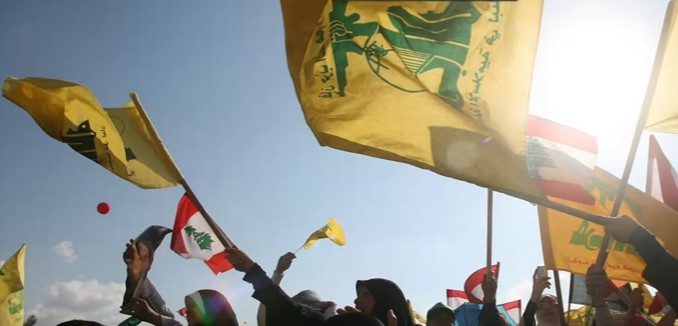In an op-ed published in The Wall Street Journal on Monday, Daniel Schwammenthal, the director of the AJC Transatlantic Institute, has warned that failure to confront Iranian-backed terrorist organization Hezbollah over its violation of U.N. Security Council Resolution 1701 will make a future war between Israel and Lebanon more likely.
While Hezbollah cannot destroy Israel, Schwammenthal observed that the group can inflict serious damage to the reputation of the Jewish state by waging a media war in which “every Lebanese civilian casualty” will be mischaracterized “as evidence of Israeli war crimes and brutality.”
As The Israel Project’s President and CEO, Josh Block, warned in an op-ed published in The Boston Herald in June 2017, hiding among the civilian population is a deliberate tactic of war, used by Hezbollah and other terrorist organization, to maximize its propaganda against the enemy.
This assessment is shared by Schwammenthal: “In its propaganda efforts, it will have help: Journalists, the United Nations and nongovernmental organizations doubtless will ignore Israeli efforts to avoid civilian deaths—which surpass even NATO standards—and avert their gaze from the readily available evidence that Hezbollah is hiding its weapons among civilians,” he stated.
Schwammenthal noted further that “If Hezbollah and its Iranian overlords knew they’d be deprived of this propaganda victory, they might be less eager to attack.”
This can only be achieved by putting Hezbollah on the EU terror watch list and holding the group accountable for its violation of U.N. Security Council Resolution 1701. “The EU should…declare that in any future war, it will hold Hezbollah and Tehran responsible for civilian casualties,” Schwammenthal stated.
He further warned of Iran’s hegemonic ambitions in the region, observing that “The time to confront Iran is now, not when it is too late, as it is in North Korea.” According to Schwammenthal, “Iran has ethnically cleansed key areas in Syria of their original Sunni residents and repopulated them with Shiites from Lebanon and Iraq. Now Iran is setting up military bases to cement its dream of a land bridge to Lebanon as a path to regional hegemony.”
In the absence of a reform movement in the country, after serious efforts by the international community to engage Iran, the EU should quit friendly photo-ops with the Iranian leadership and crack down hard on its nuclear and non-nuclear illicit activities and that of its terror proxies, Schwammenthal concluded.
“Europe’s power is mostly soft. But it can still be “weaponized” to help contain Iran and pre-empt another major war in its neighborhood,” he warned.
In a similar vein, Israel’s former ambassador to the United Nations, Ron Prosor, wrote an op-ed this past May calling on the world community to take action against Hezbollah, which he said has grown stronger than most NATO nations. He urged the UN Security Council to strengthen and enforce resolution 1701, in line with Chapter 7 of the UN’s charter, which mandates peace enforcement.
According to a July 2016 report by the Foundation for Defense of Democracies, Israeli officials believe that any future war with Hezbollah has the potential to cause “thousands of civilian deaths” in Israel. Hezbollah has, among other things, threatened to attack ammonium tanks in Haifa, which could kill tens of thousands of people.
Reports emerged in 2013 that Hezbollah was offering reduced-price housing to Shiite families who allowed the terrorist group to store rocket launchers in their homes. An Israeli defense official told The New York Times in May 2015 that the buildup of Hezbollah’s terror infrastructure in southern Lebanese villages meant that “civilians are living in a military compound” and that their lives were at risk. A few days later, a newspaper linked to Hezbollah bolstered the Israeli assessment.
[Photo: سكاي نيوز عربية / YouTube]




